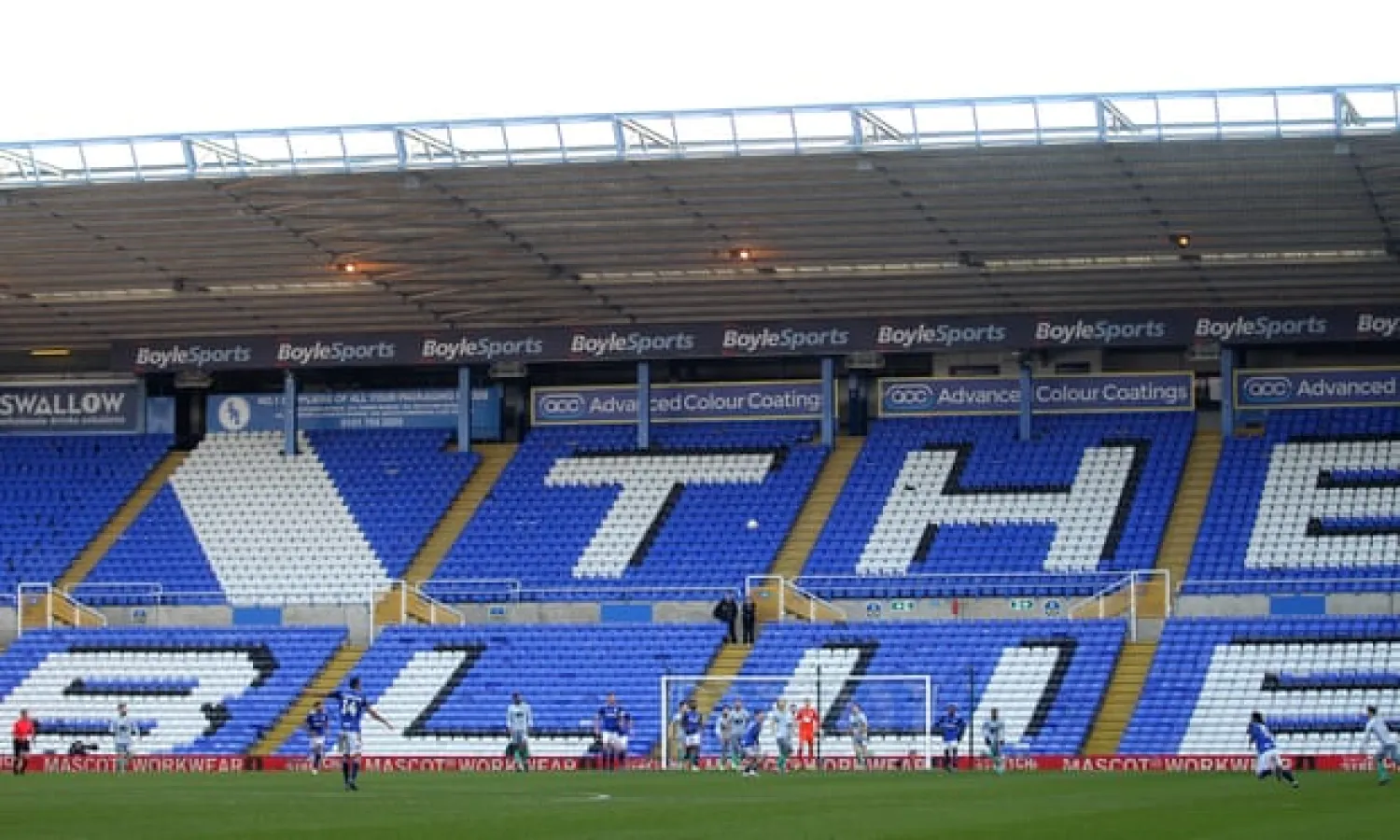Most match days, you can barely squeeze into the bar of the Royal George Hotel at the north-eastern corner of St Andrew’s. An hour before Birmingham play Blackburn, however, there are still plenty of chairs and tables available. A short distance away, in front of the Tilton Road Stand, a lone steward stands solemn guard in front of a bank of silent turnstiles. The magic of the FA Cup is still very much in evidence, it seems – but these days it tends to be more of a vanishing act.
It’s a similar story inside the stadium, where only one of the four stands – the Kop – is fully open, along with a sliver of away fans in the Gil Merrick. This despite Blackburn bringing a healthy away contingent and tickets being attractively priced at £12. Birmingham’s Twitter account was still trying to flog them early on Saturday morning.
“Good luck with that,” one fan replied. “Got a new pack of batteries I want to lick,” said another. A third respondent simply posted a gif of a man bashing himself in the head with a rock hammer.
If this seems like something of a shame, given these are two of England’s most venerable clubs with 10 FA Cup final appearances and 27 semi-finals between them, then perhaps we should scarcely be surprised either. The home side are currently fighting relegation from the Championship, while the visitors still have a decent shot at making the play-offs. An exhausting festive period, when these sides played each other on Boxing Day, has taken its toll. The game was moved to a lunchtime kick-off for overseas television (presumably in North Korea). You could scarcely concoct a less romantic set of circumstances if you tried.
The problem is that for all the pleasing randomness of the FA Cup, the A-list collisions and potential giant-killings that make its reputation are vanishingly rare. Of the 32 third-round ties, only half a dozen offer the genuine peril of a Premier League side playing a team two or more divisions below.
Ultimately, the competition’s lifeblood is ties like Birmingham v Blackburn. And if public engagement is anything to go by, there’s trouble ahead. Before the game, Birmingham’s struggling manager, Pep Clotet, was asked how much importance he placed on the FA Cup. The Spaniard pondered his answer for a full six seconds. “It’s an official game for the club,” he eventually said.
To be fair to them, neither Clotet nor his opposite number, Tony Mowbray, treated the fixture with outright disdain. Blackburn made three changes, one of which was enforced by injury. Birmingham made seven, but with the returning Jake Clarke-Salter still fielded a reasonably strong side. They even made a dream start, Dan Crowley scoring a brilliant solo goal after running unchallenged from the halfway line.
Slowly though Blackburn came back into it with Sam Gallagher missing an increasingly comical series of chances. On the hour, the Birmingham substitute Ivan Sunjic hauled him down as he bore down on goal, earning himself a red card and a penalty: not bad for a player who had been on the field for barely two minutes. As Adam Armstrong equalised, and the dreaded spectre of a replay presented itself, the game gave way to lawless chaos.
With seconds remaining, Birmingham’s 10 men broke. Blackburn took an age to organise and Jérémie Bela squeezed home an unlikely winner from a tight angle.
A despondent Mowbray was the first man down the tunnel after the final whistle. “I grew up in an era where you respected the FA Cup,” he said. “It was the biggest day of the year in our family. But that’s our fifth game in 13 days. It’s easy to sit and talk about disrespecting the Cup. But footballers aren’t machines.”
For Birmingham, meanwhile, unconfined jubilation. The attendance of 7,330 was the lowest here since 2016 and the lowest in the FA Cup since 1990. But as the players stayed on after the final whistle to applaud all one and a half sides of the ground, it was possible to speculate that even in the drudgery of an FA Cup third‑round tie nobody wanted to watch, it was still possible to find a little joy. You just needed to know where to look.
The Guardian Sport









